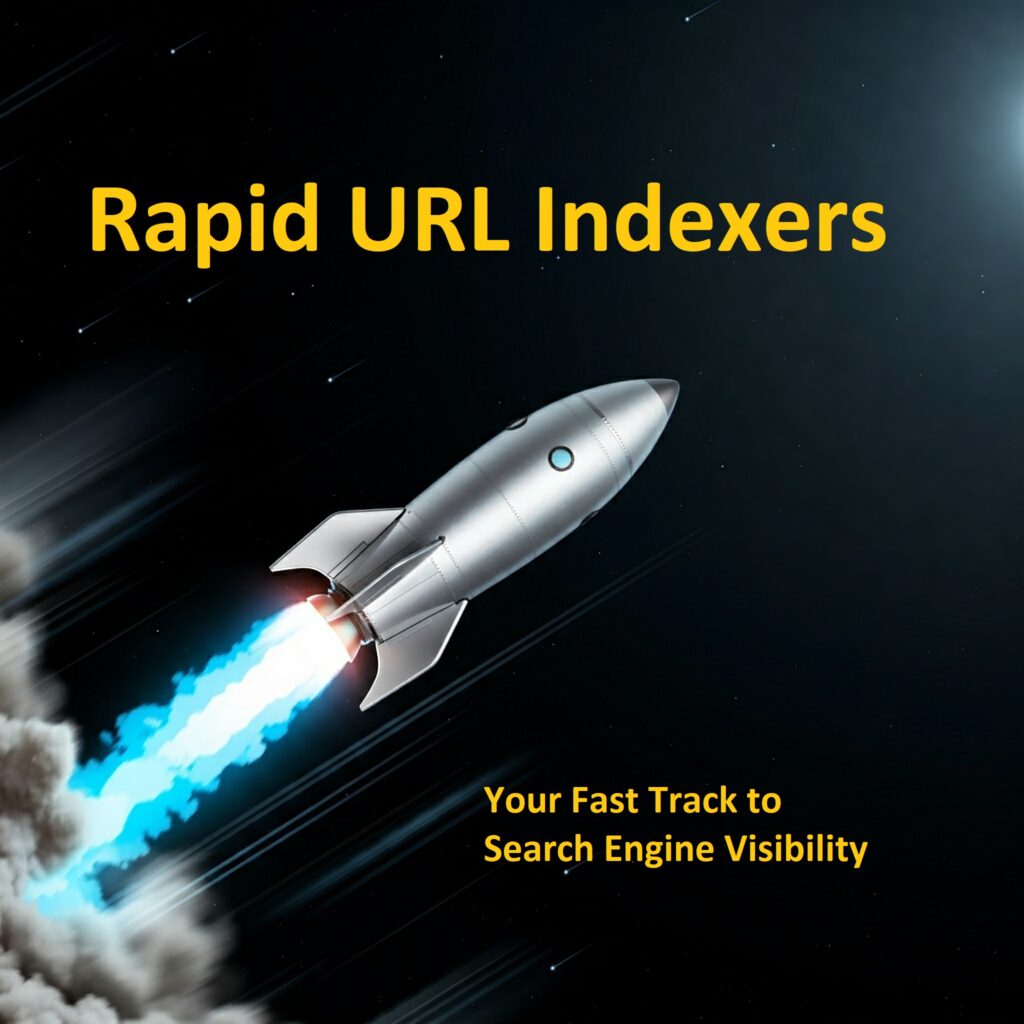Rapid URL Indexers: Your Fast Track to Search Engine Visibility
In the ever-expanding digital universe, where millions of websites compete for attention, ensuring your content gets noticed is paramount. When you create a new web page or update an existing one, you want search engines like Google to discover and index it quickly so it can appear in relevant search results. However, the traditional indexing process can be slow, sometimes taking weeks or even months for search engines to crawl and index your content. This is where rapid URL indexers come into play.
What are Rapid URL Indexers?
Rapid URL indexers are tools or services designed to accelerate the process of getting your website's URLs indexed by search engines. They act as a bridge between your website and search engines, notifying them about your new or updated content and prompting them to crawl and index it sooner. These tools employ various techniques to achieve this, such as:
- Direct URL Submission: Some indexers submit your URLs directly to search engines through their indexing APIs, bypassing the need to wait for search engine crawlers to discover your content organically.
- Pinging Services: These services send "pings" to search engines, notifying them about updates to your website, such as new pages or content changes. This increases the chances of your website being crawled and indexed more frequently.
- Link Building and Social Signals: Some indexers may also leverage link building strategies or social media signals to increase the visibility of your URLs and attract the attention of search engine crawlers.
- Crawling and Indexing APIs: Advanced indexers may utilize APIs provided by search engines to streamline the indexing process and provide more efficient submission and monitoring of your URLs.
Why are Rapid URL Indexers Gaining Popularity?
The recent surge in interest in rapid URL indexers, as evidenced by the "Breakout" trend in Google Trends, can be attributed to several factors:
- The Content Explosion: With the exponential growth of online content, website owners and seo-and-why-its-important-a-deep-dive-for-beginners/" title="What is seo and why it’s important: A Deep Dive for Beginners">seo professionals are seeking ways to get their content indexed faster to gain a competitive edge in search results.
- Algorithm Updates: Search engine algorithms are constantly evolving, and some updates might make it more challenging to get new content indexed quickly. Rapid URL indexers offer a potential solution to overcome these challenges.
- Increased Awareness: More people are becoming aware of the importance of fast indexing for seo and are actively seeking solutions to improve their website's visibility and organic traffic.

Benefits of Using a Rapid URL Indexer
- Faster Indexing: The most significant benefit is faster indexing, allowing your content to appear in search results sooner and potentially attract organic traffic more quickly.
- Improved SEO Performance: Faster indexing can contribute to improved SEO performance, as search engines tend to favor websites with fresh, updated, and relevant content.
- Increased Visibility: Getting your content indexed quickly increases its visibility to potential visitors searching for information related to your website.
- Competitive Advantage: In competitive niches, faster indexing can give you an edge over websites that rely on slower traditional indexing methods.
- Time Savings: Rapid URL indexers automate the process of submitting URLs to search engines, saving you time and effort.
Choosing the Right Rapid URL Indexer
Selecting the right rapid URL indexer is crucial to maximize its benefits and avoid potential pitfalls. Consider these factors when evaluating different options:
- Indexing Speed: How quickly does the indexer typically get URLs indexed? Look for evidence of their indexing speed and efficiency.
- Reliability: Does the indexer have a proven track record of success? Check for user reviews, testimonials, and case studies.
- Safety: Does the indexer use safe and ethical indexing methods that comply with search engine guidelines? Avoid indexers that employ black-hat SEO techniques that could harm your website's ranking.
- Pricing: What are the costs involved, and do they offer flexible pricing plans to suit your needs and budget?
- Features: Does the indexer offer additional features like analytics, reporting, or integration with other SEO tools?
- Customer Support: Does the indexer provide adequate customer support in case you encounter any issues or have questions?
Important Considerations
While rapid URL indexers can be a valuable tool in your SEO toolkit, it's essential to keep these considerations in mind:
- Content Quality is Still King: While rapid URL indexers can expedite indexing, they cannot guarantee high rankings. High-quality, relevant, and engaging content remains crucial for SEO success. Focus on creating valuable content that satisfies user intent.
- Adhere to Search Engine Guidelines: Ensure the indexer you choose uses ethical methods that comply with search engine guidelines. Avoid any indexers that employ black-hat SEO techniques that could result in penalties from search engines.
- Realistic Expectations: Rapid URL indexers can expedite indexing, but they are not a magic bullet for SEO success. They should be seen as one component of a comprehensive SEO strategy that includes keyword research, on-page optimization, link building, and content marketing.
Conclusion
In the competitive online landscape, rapid URL indexers can provide a valuable advantage by accelerating the indexing process and improving your website's visibility. However, it's crucial to choose a reliable, safe, and ethical indexer and combine it with a solid content strategy and other SEO best practices to achieve optimal results. By staying informed about the latest trends and tools in the SEO world, you can enhance your website's performance and reach your online goals.
